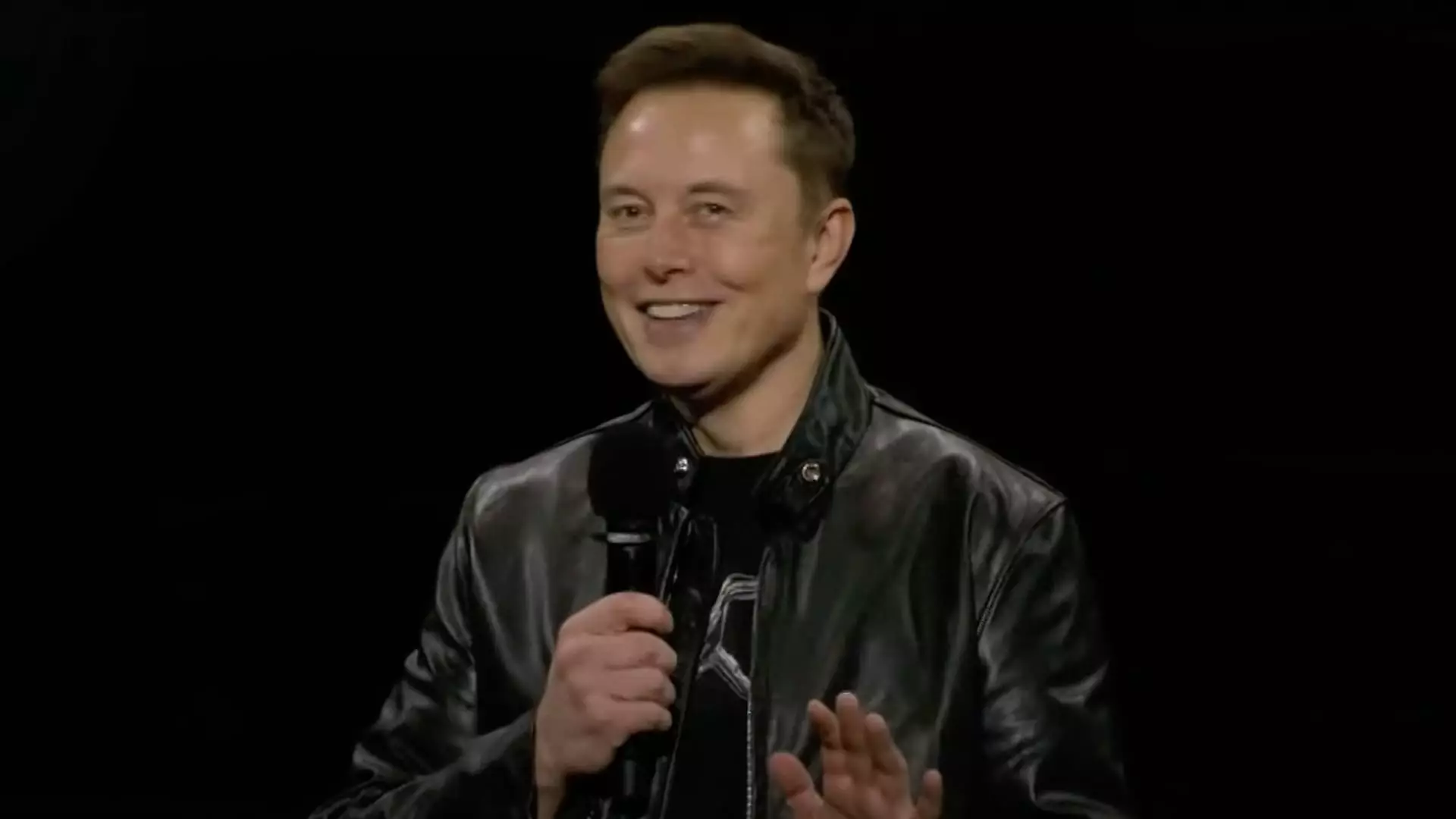Elon Musk, the renowned CEO of Tesla, has once again positioned himself as an unparalleled figure in the world of finance. With Tesla’s stock experiencing its most significant rally since 2013, Musk’s net worth surged by an astounding $26 billion, bringing him to a staggering $269 billion according to Forbes. This recent spike highlights not only Musk’s financial acumen but also the volatile nature of technology stocks, particularly in the automotive sector.
Tesla’s recent stock surge occurred after the release of an unexpectedly positive earnings report, which surpassed analyst expectations. The company’s earnings per share jumped to 72 cents, eclipsing the forecasted 58 cents. The primary drivers behind this impressive performance were substantial revenues from environmental regulatory credits and gains from their Full Self-Driving (FSD) system. This not only signifies strong operational performance but also suggests the market’s optimism about the company’s future growth potential, particularly as Musk predicts a remarkable 20% to 30% growth in vehicle production over the coming year.
However, Musk’s substantial ownership stake—around 13% of the outstanding shares—indicates that a large fraction of his wealth is intrinsically tied to Tesla’s stock performance. This leads to a precarious relationship between his financial interests and the broader market forces that can impact stock prices. The volatility inherent in the tech and automotive sectors means that Musk’s wealth, while astronomical, is susceptible to shifts in public sentiment, technological breakthroughs, and regulatory changes.
The Challenges Ahead
Despite the optimism surrounding Tesla’s earnings, the company continues to face significant challenges. The promise of autonomous driving has long been a cornerstone of Musk’s vision for Tesla. Yet, the reality of achieving a fully autonomous vehicle program has proven elusive. Other industry players, notably Alphabet’s Waymo, have advanced further in providing commercial driverless services, a benchmark that Tesla is still striving to meet. While Musk promotes the potential of Tesla’s soon-to-be-launched ride-hailing service, the ongoing delays in both product development and regulatory approvals raise questions about the achievability of his ambitious goals.
Additionally, although Musk introduced the much-anticipated Roadster and the Semi truck back in 2017, these models remain in developmental limbo. With the Roadster’s design still pending finalization and the Semi only reaching “pilot production,” critics may wonder whether Musk’s ambitious timelines can ever be realistically met. The disparity between promises and actual product delivery poses a risk, not just to investor confidence, but also to Tesla’s long-term growth strategy.
The Political Dimension of Musk’s Influence
As if navigating the fluctuating landscape of stock and automotive technology wasn’t enough, Musk is also actively engaging in the political arena. His open support for Donald Trump has drawn significant attention and scrutiny, particularly after he began endorsing the former president following a highly publicized incident in July. Musk’s political activities, which have included hefty contributions to a pro-Trump PAC, raise ethical considerations about his role as a CEO. Critics point out that his political maneuvers could potentially contradict his responsibilities toward Tesla shareholders.
In what many see as a gamble to galvanize support in swing states, Musk has instituted a staggering incentive scheme, proposing to bestow $1 million daily to voters who sign a petition supporting his PAC. This bold approach aims to mobilize his followers and ensure they participate in the electoral process. However, such tactics have not gone unnoticed by regulatory bodies. The U.S. Department of Justice expressed concerns that his voter sweepstakes might violate federal election laws, underscoring the complex interplay between wealth, influence, and democratic processes.
Musk’s political endeavors have prompted mixed reactions among investors, with some expressing concern that his extracurricular activities detract from his focus on Tesla’s core business. A sentiment echoed by retail investors emphasizes the importance of balancing personal beliefs with the overarching duty to safeguard shareholder value.
As Musk continues to expand his influence both within and outside the corporate realm, the stakes remain high. Investors are left to navigate the unpredictability of a market championed by a figure whose fortunes oscillate with both Tesla’s operational performance and his political outreach.
While Elon Musk stands as a titan of wealth and innovation, the intertwining of his financial empire with his political pursuits warrants a careful examination of the broader implications for Tesla, its shareholders, and the automotive industry at large.

Leave a Reply